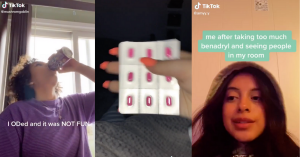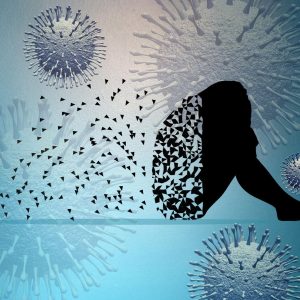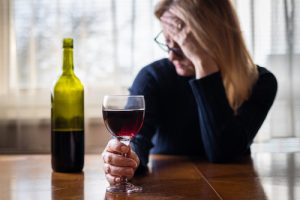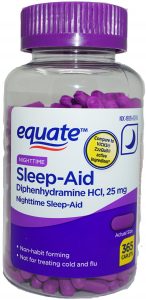
We’ve heard the term “shadow pandemic” apply to many co-occurring ongoing adverse events during the COVID-19 pandemic since lockdown began in winter/spring of 2020. This term has been applied to rising rates of domestic violence, depression, suicide (especially in young teen girls), anxiety, insomnia, and other mental health issues, and the silent killer of addiction.
During a collective trauma for people predisposed to mental health or substance abuse issues, the anxiety, isolation, and sleepless nights caused by the worry of the outside world pushed many people towards substance abuse, and finding help proved extremely difficult for many, as rehabilitation centers became more expensive, more exclusive, required more sanitation and social distancing needs, and more in-demand as more people needed them.
For one pregnant North Carolina woman, the new regulations regarding social distancing at these in-patient facilities made it especially difficult for her to confront and seek treatment for her heroin addiction.
During the pandemic, alcohol consumption rose sharply as well, especially among women. A study conducted by the RAND Corporation and supported by the National Institute of Alcohol Abuse and Alcoholism showed that heavy drinking rose by 41% during the COVID-19 pandemic in women.
Besides alcohol and other prescription medications, the use and misuse of many over the counter medications such as decongestants and sleep-aids increased during the pandemic as well.

A cheap OTC first generation antihistamine known as diphenhydramine, the active ingredient in many allergy medications such as Benadryl and sleep-aids such as Unisom, was at the center of a dangerous trend on Tik Tok known as “The Benadryl Challenge” in fall of 2020. In this challenge, users were encouraged to take extreme amounts of the substance to induce hallucinogenic effects, as when taken in high doses, it can have extreme cognitive impacts such as causing psychosis, blackouts, hallucinations, etc.. Research by the FDA showed that experimentation and abuse of these sort of cheap OTC medications increased drastically during the pandemic, especially in younger teens and adults.
These Tik Tok challenges did not warn users of the extreme adverse physical and mental impacts that could occur, nor did the bottles these are sold in, as they are marketed as “non-habit forming”, and can be sold as cheap sleep-aids in bottles of up to 365 pills.
The truth is, any substance has the potential to be addictive, and the bottles and ways in which diphenhydramine is marketed and sold as harmless sleep-aids are misleading and disingenuous on that account.

For women and all individuals readjusting to life post-pandemic (even if we’re not quite there yet), it is important that we deal with the shadow pandemic of addiction and support each other through the collective trauma we all have experienced to different degrees during the pandemic.




I didn’t even know there was a “Benadryl Challenge”. I think they will improve the Benadryl bottle now. They need a label that says it has the potential to be addictive though. I think action should be taken against people who start these harmful challenges. Hopefully, everything gets better soon.
It seems that we are making a list of the many ways that the pandemic has increased gender disparities, and in this case, they are life-threatening. Thanks for this post. Dr. Pearce